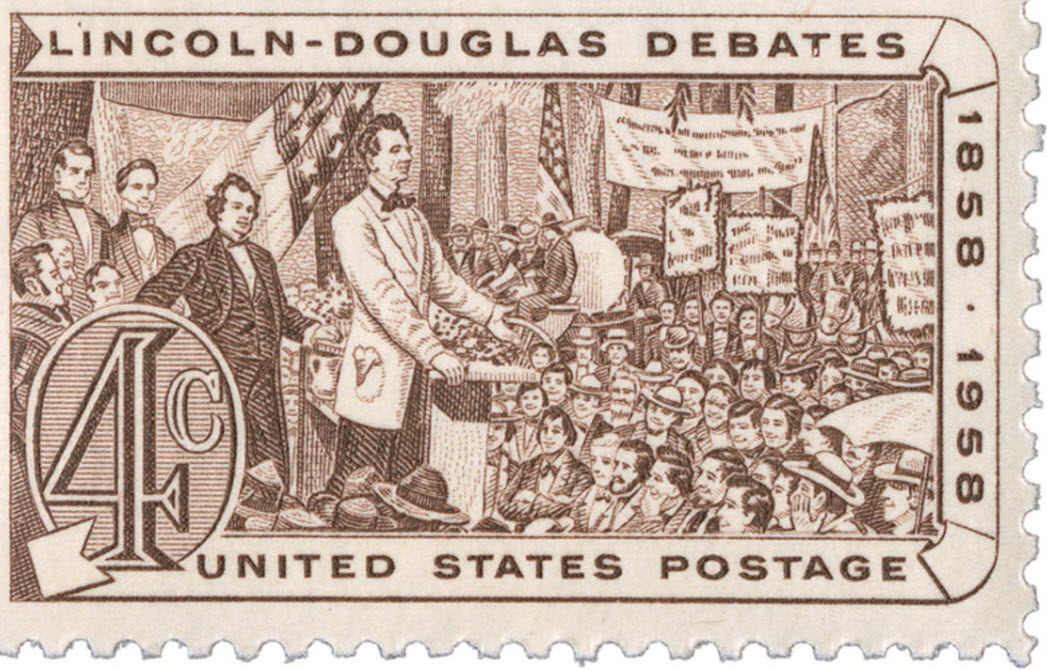This article describes the Lincoln-Douglas Debates of 1858 throughout the state of Illinois for its Senate seat.

The Speakers
In 1858, Abraham Lincoln and Stephen A. Douglas engaged in a series of seven debates in the congressional districts of Illinois over the issue of slavery. Both were vying for the Illinois Senate seat to be elected by the state legislature. Lincoln was an anti-slavery Republican and Douglas, nicknamed the "Little Giant" for his small stature but powerful voice, was the pro-slavery Democrat. Although Douglas would ultimately win the Senate, the debates helped propel Lincoln to national prominence.
Slavery in the New Territories
The major theme of the debate was the extension of slavery into new territories. In 1854, the passing of the Kansas-Nebraska Act (authored by Douglas) allowed for popular sovereignty in the new territories. Popular sovereignty meant that residents of a state or territory could vote whether to allow slavery.
The “Dangerous Radical”
Throughout the seven debates, Douglas claimed that Lincoln was a "dangerous radical" for his stance against popular sovereignty. He frequently referenced Lincoln's famous Republican nomination speech in which he claimed "a government cannot permanently endure half slave, half free," in accusing him of threatening the stability of the nation.
Not an Abolitionist?
Lincoln attacked the "monstrous injustice" of slavery and referenced the murderous events in Kansas as evidence that popular sovereignty was harmful to the nation. He claimed that "the crisis would be reached and passed when slavery was put in the course of ultimate extinction." Despite his stance against slavery, the debates revealed that Lincoln did not necessarily consider Blacks his equal. He denied he was an abolitionist in saying "And in as much as they cannot so live, while they do remain together there must be the position of superior and inferior, and I as much as any other man am in favor of having the superior position assigned to the white race."
Who won?
Despite winning the popular vote for the senate seat by more than 30,000 votes, it was Douglas who prevailed because he won the electoral vote. During the debates, however, Lincoln's tough questioning of Douglas caused a split in Democratic Party resulting in Lincoln's victory over Douglas in the Presidential Election of 1860.
Related activities
Advertisement

